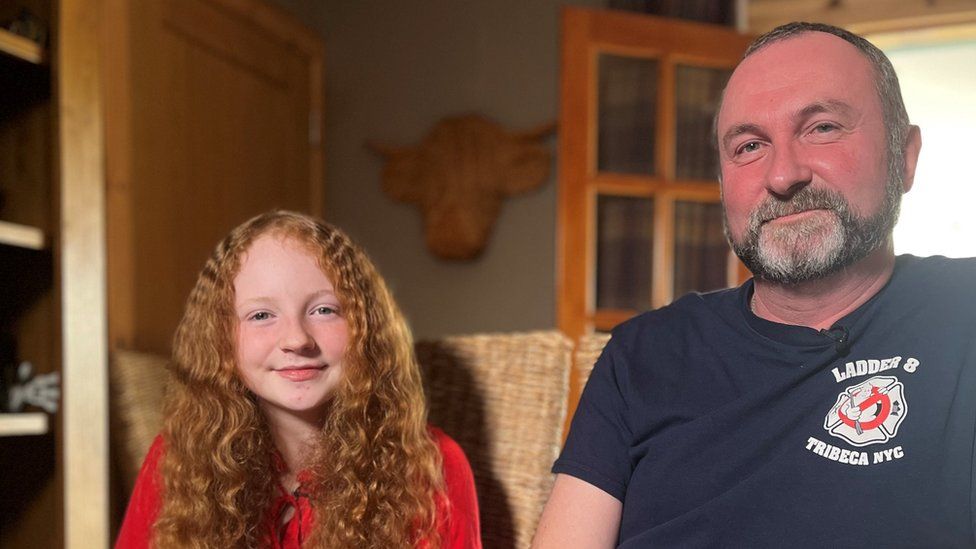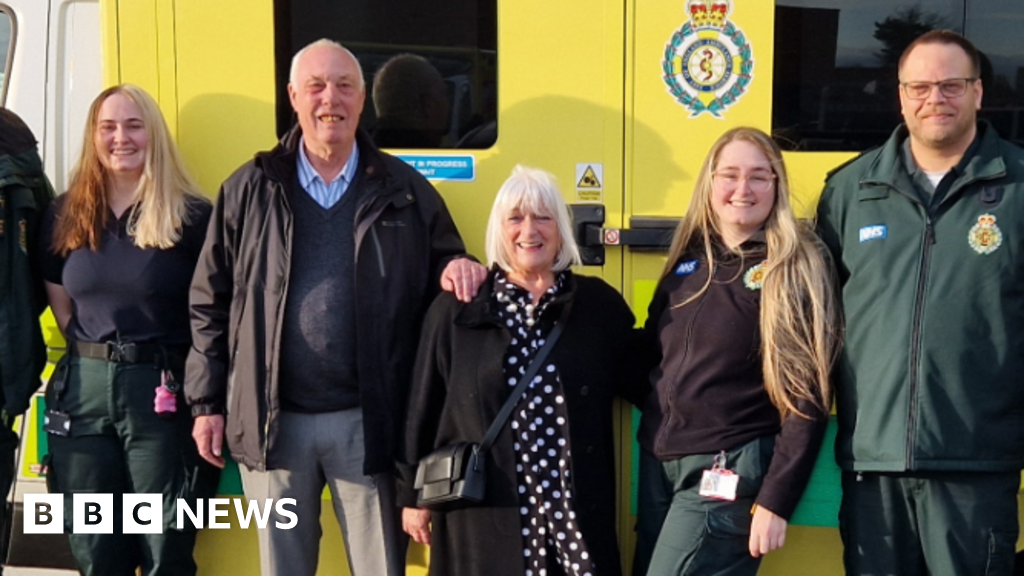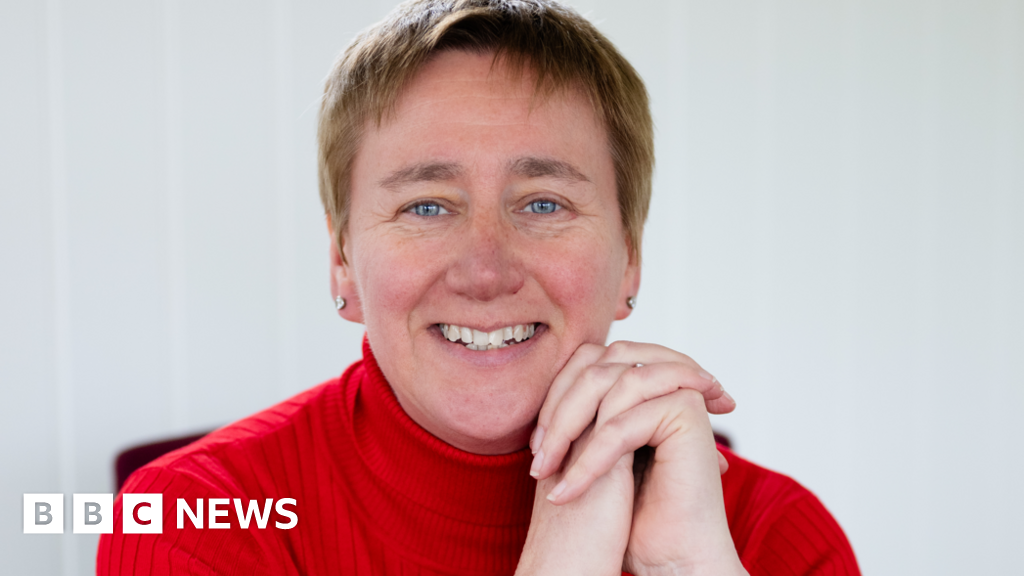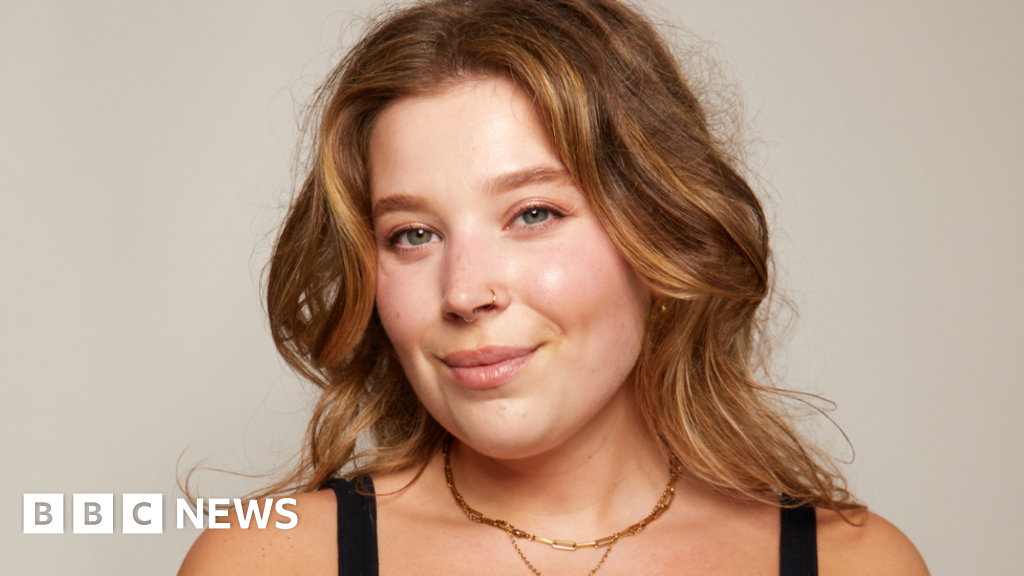
Heather Bryson has had a smart phone since she was eight-years-old
By Chris Vallance & Philippa Wain
Technology reporters
Nearly a quarter of UK five-to-seven-year-olds now have their own smartphone, Ofcom research suggests.
Social media use also rose in the age group over last year with nearly two in five using messaging service WhatsApp, despite its minimum age of 13.
The communications regulator warned parental enforcement of rules "appeared to be diminishing."
It also said the figures should be a "wake up call" for the industry to do more to protect children.
In its annual study of children's relationship with the media and online worlds, Ofcom said the percentage of children aged between five and seven who used messaging services had risen from 59% to 65%.
The number on social media went up from 30% to 38%, while for livestreams it increased from 39% to 50%. Just over 40% are reported to be gaming online - up from 34% the year before.
Over half of children under 13 used social media, contrary to most of the big platforms' rules, and many admitted to lying to gain access to new apps and services.
"I think this is a wake up call for industry. They have to take account of the users they have, not the users that their terms and conditions say they have," Mark Bunting, from Ofcom's Online Safety Group told BBC News.
"We've known for a long time that children, under the age limit on a lot of the most popular apps, are widely using those apps, and companies are now under a legal obligation to take steps to keep those children safe," he added.
Some campaigners want age limits to be introduced for smartphone use, and existing ones raised for social media.
However it is already the case that most phones possessed by children are likely to have been provided by parents - under-18's cannot sign contracts, and most big operators say they do not sell pay-as-you-go phones to under-16's.
Many parents give children phones because they want to be able to contact them or to track them via their mobile.
Parents who spoke to the BBC also cited peer pressure, saying it was a struggle to keep children off social media when all their friends were a using an app. One parent said she felt "pushed into a corner".
Closely watched
Heather Bryson who is 11 won wide recognition for her online exercise videos designed to help people in care homes during the pandemic, particularly those suffering dementia.
She's had a smartphone since she was eight-years-old.
Her parents feel she's benefited socially from being online, but what she does and who she communicates with are closely supervised.
"I think it's become an important tool for anyone growing up these days", her father, Gary Bryson says.
"Being able to monitor exactly what she's doing is paramount".
Heather says it lets her talk with friends on social media and through message apps, but there are negatives.
"Sometimes I get boys swearing at me online in chats which is not nice, but the good things there are loads of nice people out there too".
"It's just something that you get used to after a while but you shouldn't have to", she says.
'Resigned' parents
Only a third of parents know the correct minimum age requirement for most social media platforms Ofcom suggests
But the regulator said parents were also less willing to enforce the rules they knew about.
Three in ten parents were willing to let a child aged 5-7 have a social media profile even if it was under the minimum age permitted for the apps, an increase compared to last year.
Parents may be "resigned" to not being able to control children's online lives the new report notes.
Mr Bunting said he had "a lot of sympathy" for parents on this issue:
"It may not be about preventing use entirely for children under 13, which I think is very difficult in today's society. But parents can talk to their children about using those services safely. And we'd encourage them to do that," he said.
Phone free
Some say investigations like that carried out by the BBC this month - which found that children as young as nine were added to a malicious WhatsApp group - mean further action is needed.
Mark Zuckerberg, the chief executive of Meta which owns WhatsApp and Instagram, has previously suggested that he favours requiring app-stores to check the ages of users.
Responding to the Ofcom report, Clare Fernyhough, of the Smartphone Free Childhood campaign, told the BBC that society had sleep-walked into "just assuming that we all need a smartphone - and now we're beginning to see the huge impact that that's having"
But Professor Sonia Livingstone, Director of the Digital Futures for Children centre, said it was wrong to protect children by restricting their access to technology.
"This is the first generation with access to a powerful personal computer, it could be so amazing for them, and that's what children want too," she told the BBC.
"But the companies are risky by design, and what we need is child rights by design", she said.
Ofcom said new age limits for smartphones would be a matter for government.
In May it will be consulting on the steps it expects tech firms to take to ensure children have safer experiences online, and later on new uses of AI to combat harmful content online.
In a statement, the Secretary of State for Science, Technology and Innovation Michelle Donelan said protecting children online was the government's number one priority.
"Children as young as five should not be accessing social media and these stark findings show why our Online Safety Act is essential," she said.
Does your young child have a smartphone? Share your experiences by emailing haveyoursay@bbc.co.uk.
Please include a contact number if you are willing to speak to a BBC journalist. You can also get in touch in the following ways:
If you are reading this page and can't see the form you will need to visit the mobile version of the BBC website to submit your question or comment or you can email us at HaveYourSay@bbc.co.uk. Please include your name, age and location with any submission.
 (1).png)
 8 months ago
17
8 months ago
17













